Peninsula to supply biofuel in Gibraltar
Chris Warde details how greater transparency within the biofuel supply chains will help decarbonise yachting in the Med…
Peninsula will supply biofuels to yacht owners in the Gibraltar Strait and surrounding areas having recently received its International Sustainability and Carbon Certification (ISCC). The fuel provider can now track the sustainability credentials of fuel from source to supply, enabling its customers to calculate their carbon emission reductions when using biofuel.
“What this does for yacht owners is remove the vagueness around the benefits of biofuels and allows them to see what their carbon [emission] reductions are,” Chris Warde, Head of Peninsula Yacht Services tells the Superyacht Group. “This not only includes their fuel consumption but also takes into account the feedstock, production and transportation of the fuel to their boat.”
European commercial shipping now has legislation requiring ships to calculate their carbon footprint under the FuelEU Maritime. “But yachting doesn’t have that yet, which is why the ISCC is great as it provides that transparency,” continues Warde, adding that this is imperative considering there are no local biofuel producers in Gibraltar.
“You only have to look at the work of the YETI tool from Water Revolution Foundation, or SEA index out of Monaco to understand that it’s not just the impact at use that needs to be measured and reduced to improve our environmental footprint.”
Warde highlights that the use of second-generation feedstocks is key to lowering emissions and providing a viable source of low-carbon fuel. First-generation feedstock refers to crops grown specifically for the purpose of producing biofuels on land that could be used to produce food. “Whilst second-generation feedstocks are mainly from agricultural waste and used cooking oils that do not compete with food production,” he says.
Biofuel produced using second-generation feedstock has the potential to cut a yacht’s carbon fuel emissions by 90%, according to Peninsula. Average reductions however are estimated to be between 75% to 90%.
The ISCC certification system would then provide fully traceable information on the fuel. To ensure that its marine fuels can be fully certified, the ISCC assesses everything from farm level to the moment the fuel is onboard. Each company in the supply chain is audited annually to ensure they are meeting and continuing to meet ISCC’s required standards and specifications.
“We can now provide yacht owners with the evidence of their fuel’s environmental impact,” says Warde. “This way, they can understand what is actually happening, giving them providence over their fuel consumption.”
Profile links
NEW: Sign up for SuperyachtNewsweek!
Get the latest weekly news, in-depth reports, intelligence, and strategic insights, delivered directly from The Superyacht Group's editors and market analysts.
Stay at the forefront of the superyacht industry with SuperyachtNewsweek
Click here to become part of The Superyacht Group community, and join us in our mission to make this industry accessible to all, and prosperous for the long-term. We are offering access to the superyacht industry’s most comprehensive and longstanding archive of business-critical information, as well as a comprehensive, real-time superyacht fleet database, for just £10 per month, because we are One Industry with One Mission. Sign up here.
Related news
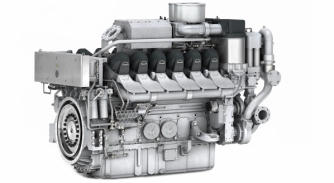
MAN 175D is HVO ready
MAN Energy Solutions has announced that its MAN 175D engine is formally approved for operation on biofuels, effective immediately
Technology
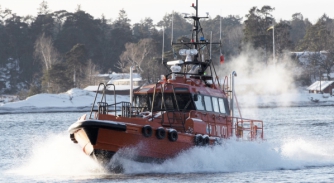
Joint investment in methanol conversion kit
Designed initially for use on diesel engines up to 1000kw, it shows scalability and promise for fossil-free solutions in the marine industry
Technology
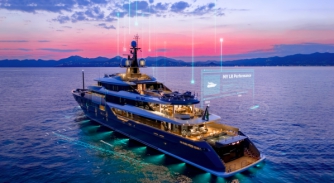
The rising importance of fuel testing for superyachts
Testing remains imperative despite the predominant use of distillate fuels across the sector, says Lloyd's Register
Crew
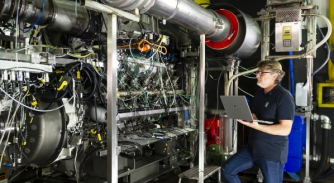
Rolls-Royce successfully tests mtu engines with pure hydrogen
Rolls-Royce has successfully tested a 12-cylinder gas variant of the MTU Series 4000 L64 running on 100% hydrogen
Business
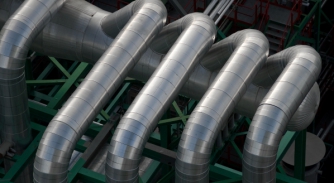
Biofuel plant to open in Spain
Mediterranean capacity of 2nd gen and advanced biofuels to increase with petrochemical giant Repsol to start production at Cartagena facility
Business
Related news
MAN 175D is HVO ready
2 years ago
Joint investment in methanol conversion kit
2 years ago
Biofuel plant to open in Spain
2 years ago
NEW: Sign up for
SuperyachtNewsweek!
Get the latest weekly news, in-depth reports, intelligence, and strategic insights, delivered directly from The Superyacht Group's editors and market analysts.
Stay at the forefront of the superyacht industry with SuperyachtNewsweek



